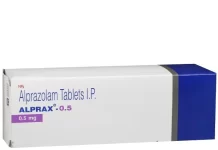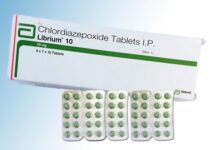Aspirin, also known as acetylsalicylic acid, is a widely used medication with various applications. Here is some basic information about aspirin tablets: Aspirin Tablet Uses Benefits and Symptoms Side Effects

1. Mechanism of Action:
- Aspirin belongs to the class of medications known as nonsteroidal anti-inflammatory drugs (NSAIDs). It works by inhibiting an enzyme called cyclooxygenase (COX), which plays a role in the production of prostaglandins. Prostaglandins are substances that contribute to inflammation, pain, and fever. By blocking their production, aspirin helps reduce these symptoms.
2. Uses:
- Pain Relief: Aspirin is commonly used to relieve mild to moderate pain, such as headaches, muscle aches, toothaches, and menstrual cramps.
- Anti-inflammatory: It has anti-inflammatory properties and can be used to reduce inflammation in conditions like arthritis.
- Fever Reduction: Aspirin is effective in lowering fever, making it a common choice for fever management.
3. Cardiovascular Benefits:
- Aspirin is sometimes prescribed for its antiplatelet effects, which means it can help prevent blood clots. Low-dose aspirin is often recommended for individuals at risk of cardiovascular events, such as heart attacks or strokes.
4. Dosage:
- The dosage of aspirin can vary depending on the purpose (pain relief, anti-inflammatory, or antiplatelet effects), age, and other factors.
- It is important to follow the recommended dosage on the packaging or as directed by a healthcare professional.
5. Side Effects:
- Common side effects may include stomach upset, heartburn, or nausea.
- Aspirin can increase the risk of bleeding, and in rare cases, it may cause serious gastrointestinal bleeding. It’s important to seek medical attention if you experience severe or persistent side effects.
6. Contraindications:
- Individuals with a history of aspirin allergy or asthma exacerbated by aspirin should avoid it.
- People with certain medical conditions, such as bleeding disorders or a history of stomach ulcers, may need to avoid aspirin or use it with caution.
7. Interactions:
- Aspirin can interact with other medications, including blood thinners, some antacids, and certain medications for high blood pressure. Inform your healthcare provider of all the medications you are taking.
8. Precautions:
- Aspirin should be used with caution in children and teenagers with viral infections due to the risk of Reye’s syndrome.
- Long-term, high-dose use of aspirin may be associated with an increased risk of gastrointestinal bleeding and other complications.
Always consult with a healthcare professional before starting any new medication, and make sure to provide a complete medical history to ensure the safe and effective use of aspirin.
Aspirin Tablet Benefits Aspirin Tablet Side Effects Aspirin medicine Uses Benefits and Symptoms Side Effects Aspirin Tablet IN HINDI Aspirin medicine Uses Benefits and Symptoms Side Effects Aspirin Tablet IN HINDI pain reliever Aspirin fever medicine Aspirin pain reliever Aspirin fever medicine Aspirin






